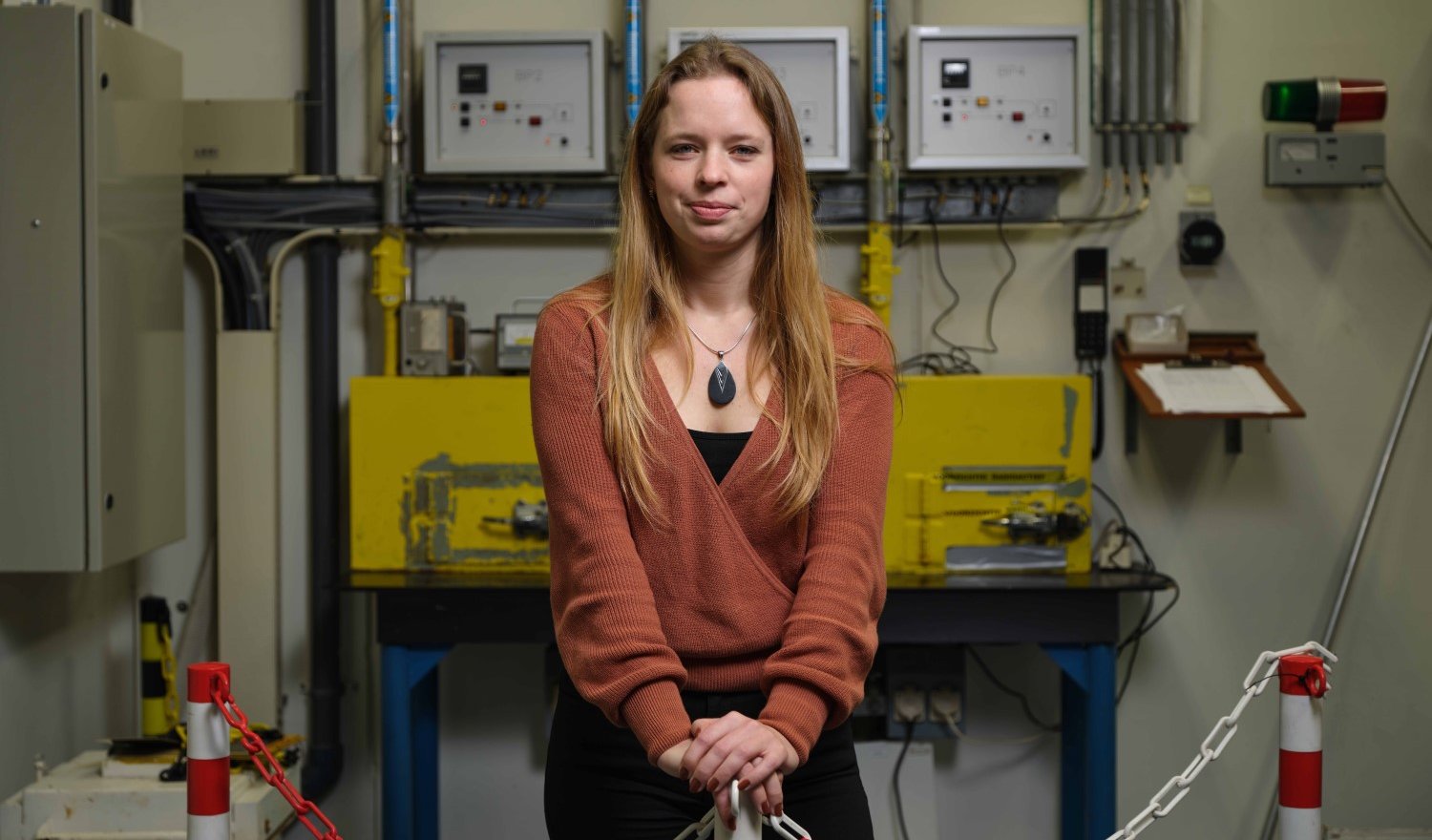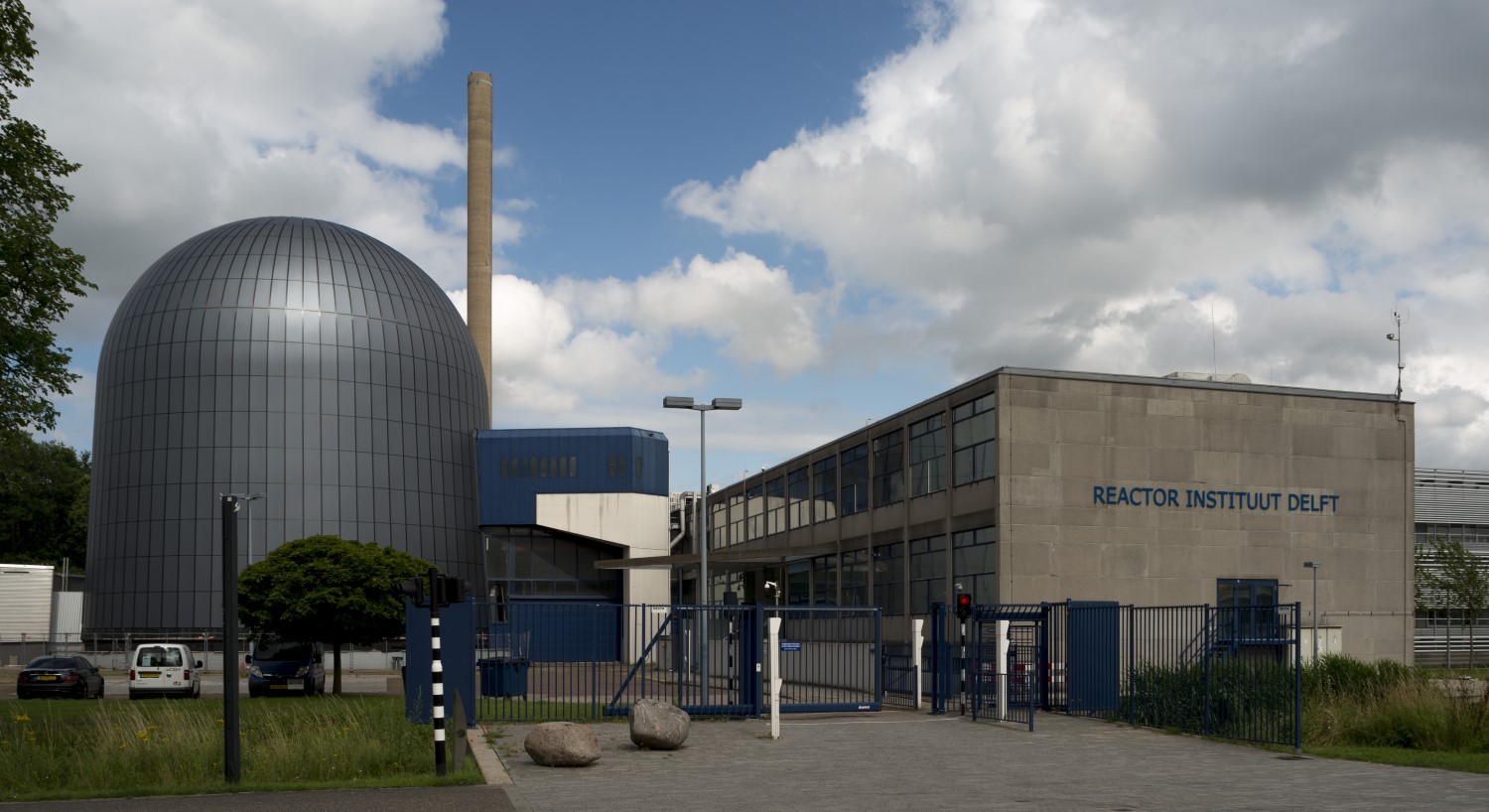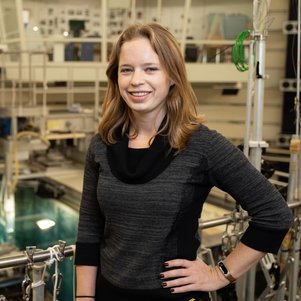Dutch Research Council Veni grant for Robin de Kruijff
The Dutch Research Council (NWO) has awarded a Veni grant to researcher Robin de Kruijff of the Reactor Institute Delft (RID) for her research on a new type of radionuclide generator which, among other things, can obviate the global bottleneck in cancer research. The new generator will, moreover, be the first recyclable one of its kind. “I hope that my new type of generator will ultimately make diagnostic treatments much more accessible and less dependent on a handful of reactors”, says De Kruijff.
Hospitals primarily use the radionuclide technetium-99m (99mTc), a decay product of molybdenum (99Mo), to track down medical disorders, such as cancer, with a SPECT scan. However, 99Mo is mainly produced in outdated nuclear reactors and the process generates large quantities of long-lived radioactive waste. New and better production methods are needed if we are to keep using these isotopes in the future. This is why De Kruijff is committed to developing a new type of radionuclide generator, based on nanoparticles, to produce radionuclides more cleanly and to ensure that production no longer depends on existing reactors.

Towards more global 99mTc production
According to De Kruijff, the most important advantage of the new type of generator is that it provides many more possibilities for producing 99Mo/99mTc generators: “99Mo is currently obtained by splitting uranium nuclei, which only yields 6% 99Mo”, she explains. “And, furthermore, a lot of radioactive waste is formed. The new generator, on the other hand, produces 99Mo not by splitting uranium but by irradiating another isotope of molybdenum (98Mo or 100Mo). Using this method, 99Mo could be produced by hundreds of reactors and particle accelerators all over the world, instead of by the few reactors now used.”
Recyclable nanoparticles
Unlike current generators, this potential alternative is also recyclable. This is because an ingenious construction using nanomaterials, which consist largely of molybdenum, enables the selective removal of the 99mTc from the generator. After a couple of weeks of use, the hospital can send the generator back to an irradiation facility which makes it radioactive again. “I am primarily carrying out this research so that as many patients as possible receive good treatment”, says De Kruijff, “but it is, of course, a bonus if less radioactive waste is produced.”

De Kruijff already has plans to use her Veni research for another application. Once she has got the 99Mo/99mTc radionuclide generator working for diagnostics, she will be able to apply the same technique to create a comparable generator for medical therapy. There is, for example a wolfram-rhenium isotope pair which is suitable for irradiation and works in a manner very similar to that of the 99Mo/99mTc pair.


Dr.ir. Robin de Kruijff
Assistant Professor
- +31 (0)15 27 81485
- R.M.deKruijff@tudelft.nl
- https://www.robindekruijff.com/
-
Building 50, room 02.00.380
Mekelweg 15
2629 JB Delft
The Netherlands